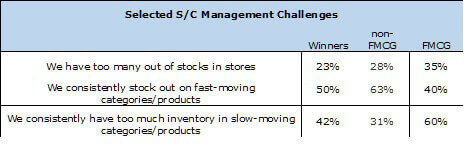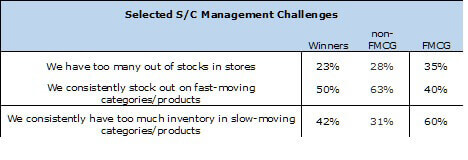Location Analytics In Retail: Don’t Be ‘Creepy’
Just last month, RSR published its first benchmark on location analytics in Retail (Location Analytics: New Data, New Opportunities, January 2018), and it turns out that the timing for the subject couldn’t be better. Responses to our survey showed that the greatest challenge that retailers perceive is that consumers have grown impatient with a tired, old-fashioned and impersonal physical shopping experience, and that is driving them to consider location-based intelligence to drive a highly targeted value proposition to consumers. Responding to that challenge means two things. First, the store has to be more than it has been in the past- no more one-size-fits-all formats and assortments in inconvenient-for-the-consumer locations (that’s where geo-spatial analysis comes in). Secondly, relevant value has to be presented to consumers in new way, wherever consumer are (that’s where consumer GPS data becomes important).
The initial premise of the study was that retailers are ready to use the insights that geo-spatial data can create. We also wanted to test the industry’s level of excitement about GPS data to personalize content and offers to consumers. It was perhaps not so surprising that over-performers ( “Retail Winners “, in RSR’s parlance) favor using anonymous location tracking data for a variety of operational decisions, more than their average and under-performing counterparts (chart).

Source: RSR Research, January 2018
But we were definitely surprised at the level of excitement that retailers expressed about using non-anonymous data generated by consumer-mobile devices to target one-to-one value offers (table, below):

In the report, we opined that retailers should not wander from the realm of data richness into creepiness and risk alienating the very customers they choose to court. There’s a reason to be concerned! When we asked retailers, “Cellular network providers are working with data providers to establish a customer’s identity and other data and provide it to retailers – what’s your opinion about using that data? “, we were again surprised that 41% of our respondents said it’s “a great idea! ” – and there was no difference between Winners and all other retailers.
Why is that an issue?
Don’t Be Creepy
Back in 2014, Forbes posted an opinion piece by Danielle Citron, a law professor teaching at the University of Maryland Carey School of Law, entitled BEWARE: The Dangers Of Location Data . In the piece, Citron explained that, “Consumers likely don’t know that their phones continuously collect their location data for reasons that have nothing to do with the routing of their calls and e911 requirements… If consumers keep the always-on setting for their geolocation data (that is, the street and city where a phone is located as it changes moment to moment), they are opening themselves up to mischief and far worse. Geolocation data tells us intimate, revealing details about people’s lives–their visits to drug treatment clinics, psychiatrists, prospective employers, and more… It is subject to serious abuse, from domestic abuse and stalking to theft and discrimination. ”
The gist of the lawyer’s opinion was that consumers have to take the initiative, and turn off their mobile devices’ default-always-on location based service capability. But I think expecting consumers to do that is about as likely as it was to ask them to set the digital clocks on their VCRs back in the 1990s.
That pushes the requirement to be scrupulous back on companies that collect, analyze, and use the data. And that’s why we expressed a strong concern in the report about retailers’ naivet√©. We noted in the report that the bigger retailers expressed the greatest concern that consumers might not like being tracked (chart, below). The troubling thing about that response is that only 53% of the biggest retailers think that consumers will be concerned.

Because of this finding, we made the following observation in the BOOTstrap Recommendations section of the report:
“Europe appears to be even more sensitive to consumer privacy concerns than the U.S. is. What seems to be okay today may not be acceptable tomorrow. Err on the side of caution, and disclose, disclose, disclose.
“Frankly, a long email to consumers explaining new privacy policies will not be read, nor will it be absorbed. Plain English descriptions of what you are doing, broken into manageable chunks will help consumers decide if they want to opt in or out of any kind of tracking technologies.
“We were rather concerned at most of the privacy related responses in this survey. Please be aware: consumer trust is a fragile thing. Once broken, it is hard to recover. Be careful! “
